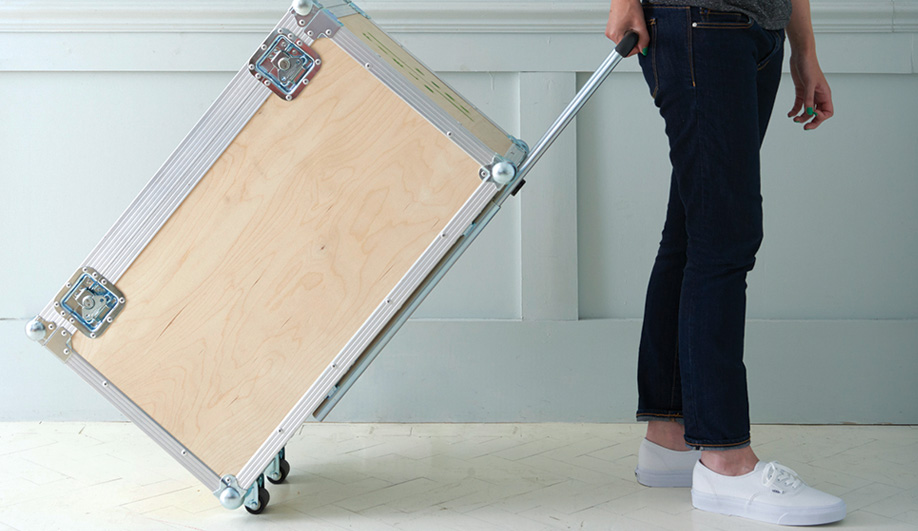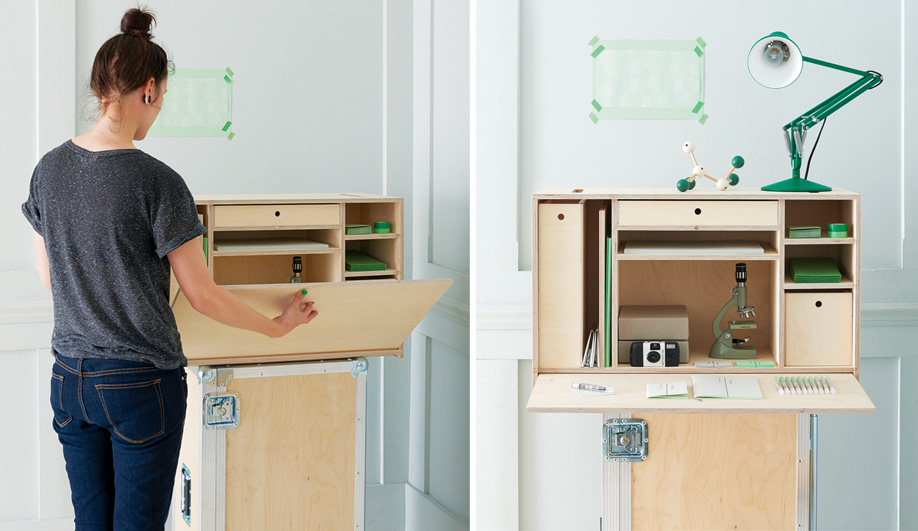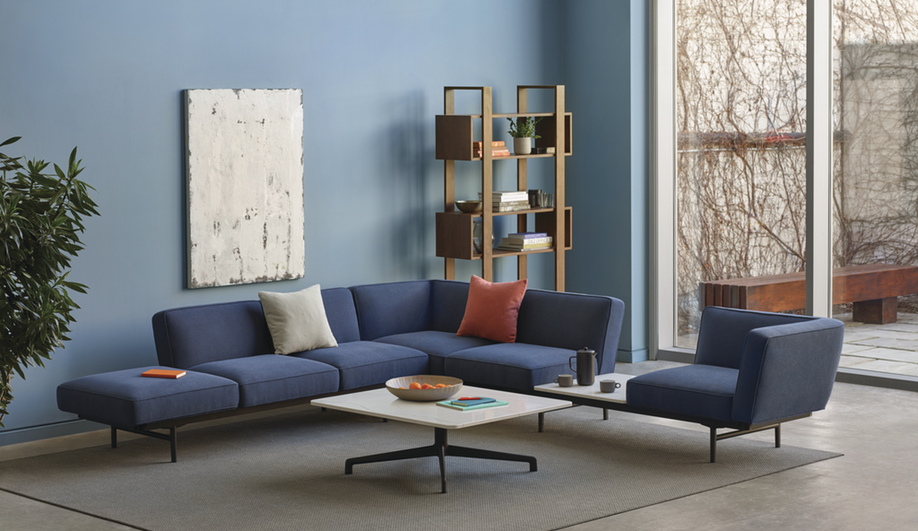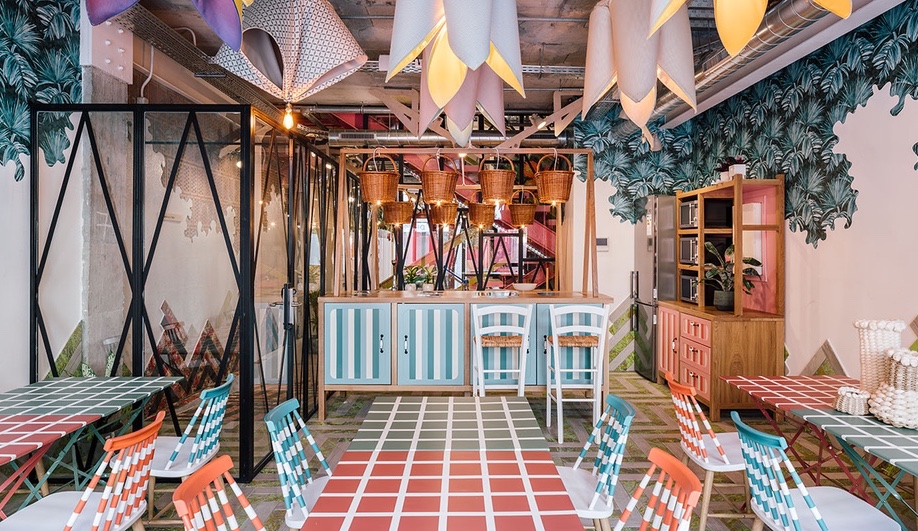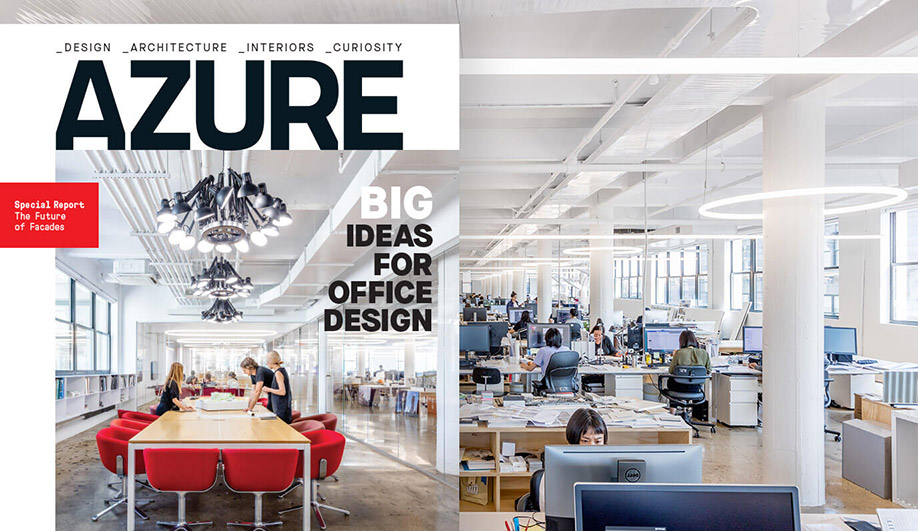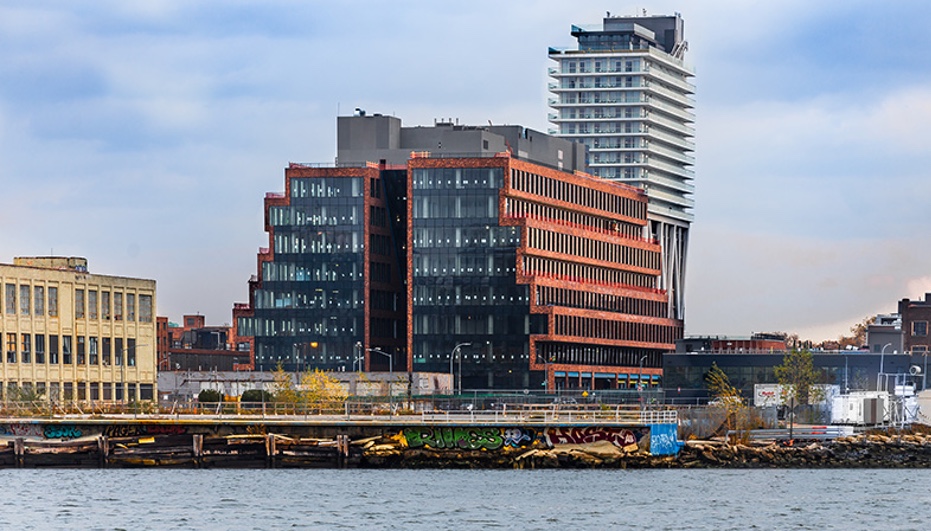With its mobile desk in tow, the London consultancy helps companies stir up team spirit and maintain a healthy bottom line.
In 2014, entrepreneur Curtis James, an avid documentary photo blogger, founded a novel consultancy in London called Fieldwork, which uses ethnological studies to help companies fine-tune their operations by finding new ways to inspire employees. But James doesn’t rely on management meetings or remote data research. Rather, he and his agents (one with a Ph.D. in anthropology) immerse themselves in their client’s workspace, tracking the daily habits and goings-on, and recording their observations via photographs and notes.
The fieldworkers arrive with their own custom-made lab, a plywood trunk on wheels that opens into a mini-office with a pull-down writing surface and cubbyholes for storing research materials. Designed by Steve Baines and Eliza Fricker, of Baines&Fricker, the lab is constructed for quick set-up and portability, in the tradition of military field desks. When it’s delivered, the agent simply mounts the contents on top of the shipping box and begins. It’s a rather theatrical way of studying human behaviour on site, but one that helps James and his team engage employees in the process while keeping an impartial distance. Once the studies have been completed, the “artifacts” are exhibited on the office wall, and later turned into a digital book with recommendations and tools to adopt.

